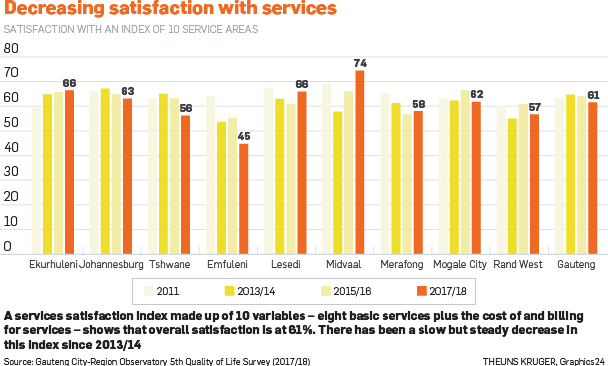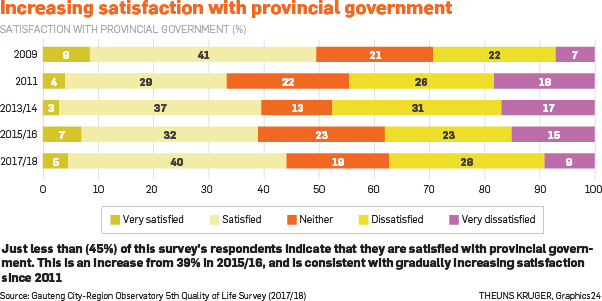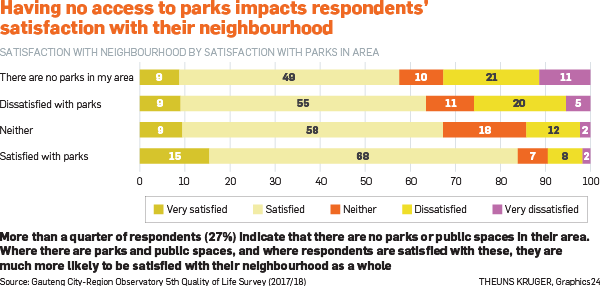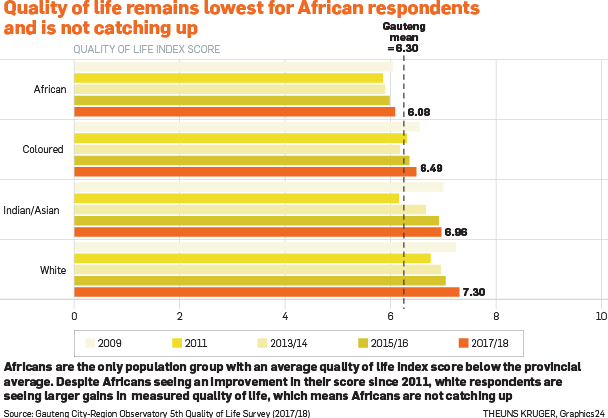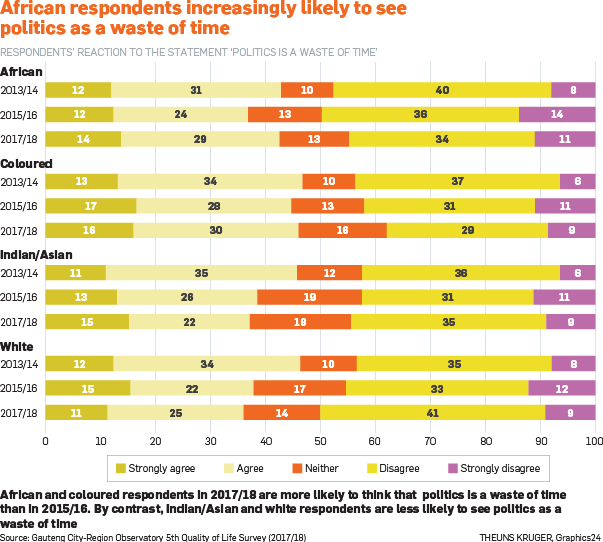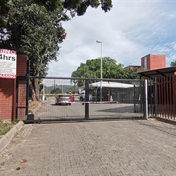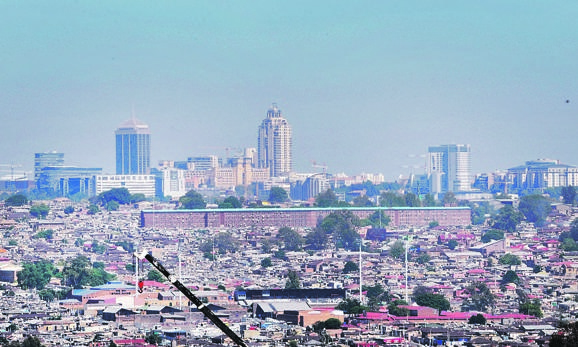
Quality of Life survey illustrates the enduring and stark divide between the country’s races when it comes to economic equality, writes Mondli Makhanya
It was former president Thabo Mbeki who, back in 1998, declared that South Africa was “a country of two nations”.
In a speech to the National Assembly, Mbeki, then deputy president, said that to build a common nationhood, South Africa needed to honestly confront this fact, “however discomfiting it may be”.
He argued that “material conditions in our society ... have divided our country into two nations, the one black and the other white”.
One of these nations, Mbeki said, is white and “relatively prosperous” and “has ready access to a developed economic, physical, educational, communication and other infrastructure”.
The second and larger nation “is black and poor”, and “lives under conditions of a grossly underdeveloped economic, physical, educational, communication and other infrastructure”.
This nation had “virtually no possibility to exercise what in reality amounts to a theoretical right to equal opportunity”, said Mbeki.
It seems that, nearly 20 years later, not much has changed.
According to the latest Quality of Life survey released by the Gauteng City-Region Observatory, Africans are not catching up with other population groups.
The annual study, which the Gauteng provincial government conducts in conjunction with Wits University and the University of Johannesburg, found that, while the perception of quality of life has been steadily improving since the first survey in 2009, racial disparities were still very stubborn.
About 25 000 Gauteng residents were interviewed during the study.
White Gautengers, the Gauteng City-Region Observatory found, are seeing larger quality of life gains than Africans, Indians and coloureds.
It found that, while quality of life scores for Africans and whites have been rising steadily in the past eight years, “the rate of increase has been faster for whites”.
Christina Culwick, the survey’s senior researcher, said: “This is concerning as it suggests both persistence and deepening of historical inequalities.”
The inequality is felt in the supply of services.
While 90% of Gauteng’s residents reported that they had access to piped water, consistency of delivery was markedly different.
For instance, 67% of people living in Sandton said they never experienced water interruptions, while only a third of those living in Soweto said they did not have that problem.
Noting that the legacy of the past was still very much with us, the study found that, “across municipalities, the challenge is concentrated in township areas that were not originally built for the populations they now hold”.
Although race is not mentioned, a quarter of the respondents said there had been a protest in their community in the past year, and 36% said this had been related to electricity provision.
Violence including arson and looting occurred during more than a third of these protests.
Allocation of RDP housing came second at 17%. Corruption and access to jobs were next on the list of people’s grievances.
A highly dispiriting finding was the number of Gautengers who reported being forced to skip meals due to dire economic conditions.
More than 20% of respondents said an adult had had to skip a meal in the past year, up from 14% four years ago.
There was a sharp increase in this phenomenon among households with an income of less than R3 200 a month.
Even more concerning was that 21% of respondents from households with children said that “there had been a time in the past year when there was not enough money to feed the children”.
This was up from 11% four years ago.
“The impact of this is felt particularly strongly in poorer households,” the survey found.
About a fifth of Gauteng parents said they sent at least their eldest child to a private school, an occurrence that was naturally more prevalent among people in more affluent areas.
In poorer areas, state education was the obvious option, highlighting the need to ensure “that all public schools provide high quality education”.
When it came to satisfaction with provincial government, the study found that this was a significant improvement and that this was mostly among whites.
Satisfaction levels among whites jumped 15% since last year’s findings, while the result among Africans was only up by 3%.
Worryingly for political parties in the year before a general election, an incredibly high 42% of citizens of the country’s most populous province think that “politics is a waste of time”.
According to the survey, this sentiment is increasing among Africans and coloureds, while it is decreasing among whites and Indians.
On a positive note, it appears that love across the colour line is becoming ever more acceptable.
Three-quarters of respondents said they had no problem with interracial dating and marriage.
But there was quite a difference in attitude among age groups – 80% of those between the ages of 18 and 24 (the so-called born frees) were fine with such relationships, while just 71% of those older than 60 were okay with interracial unions.
TALK TO US
Has your quality of life improved or deteriorated in the past year? Tell us what has made it better or worse.
SMS us on 35697 using the keyword LIFE and tell us what you think. Include your name and province.
SMSes cost R1.50. By participating, you agree to receive occasional marketing material




 Publications
Publications
 Partners
Partners




